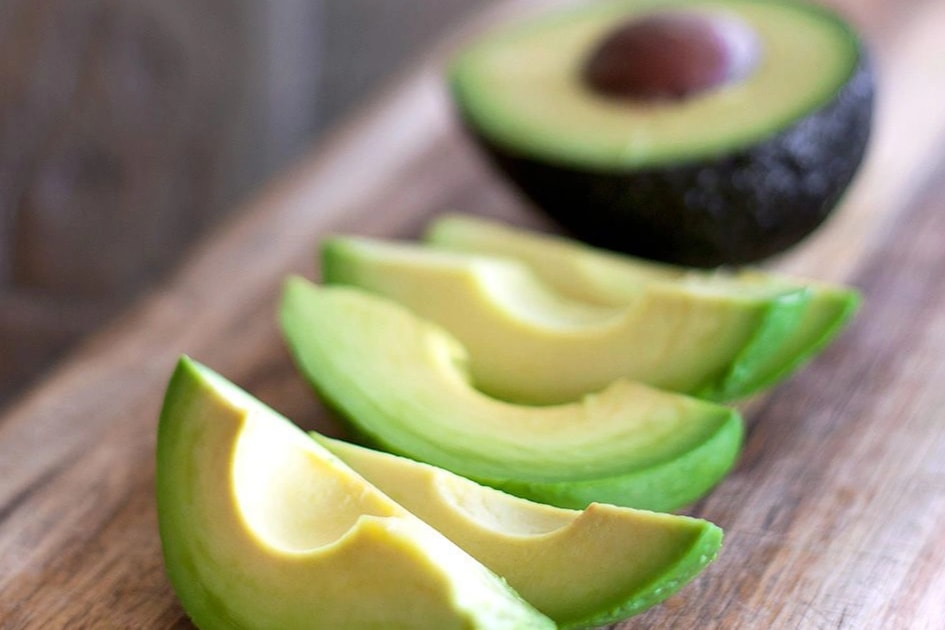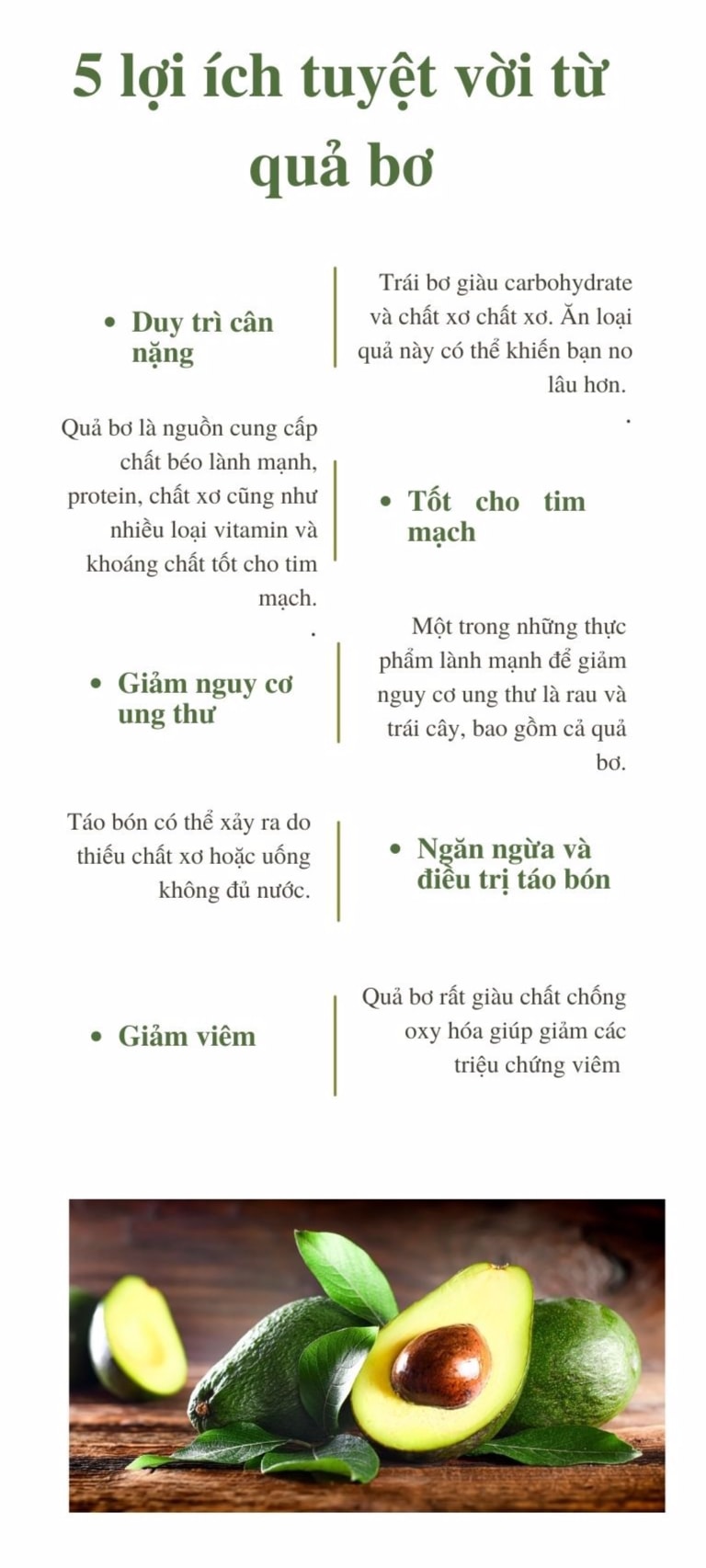Impressive benefits of eating 1/3 avocado every day
Eating a serving of avocado daily can do wonders for your health, including better skin, reduced risk of heart disease and diabetes, and weight loss.
They say an apple a day keeps the doctor away, but there is another fruit that can do wonders for your health when included in your daily diet. That is the avocado.
With nearly 20 vitamins, minerals, and plenty of good fats, it's no surprise that so many studies link avocados to heart health, weight control, and skin health.
So is eating avocado every day really good for your health?
Nutritional composition of avocado
According toToday, one serving of avocado (1/3 of a medium fruit or 50 grams) contains 80 calories, 1 gram of protein, 7 grams of fat, 4 grams of carbohydrate, 3 grams of fiber, 250 milligrams of potassium, 15 grams of magnesium, 0.1 mg of vitamin B6, 1 mg of vitamin E, 4 mg of vitamin C, 11 mcg of vitamin K, and 5 mcg of folate.
One serving of avocado has 6 grams of unsaturated fat, which is the healthy kind of fat.

Avocados may reduce the risk of heart disease and diabetes
Avocados are good for your heart, according to a recent systematic review. Of the studies examined, 10 replaced avocados with other fat sources, and 2 added avocados to participants' standard diets.
Overall, the results suggest that consuming avocados twice a day as part of a diet low in saturated fat and cholesterol may help reduce blood levels of total and LDL (bad) cholesterol. Another observational study of 68,000 women found that eating more avocados was associated with a lower risk of cardiovascular disease.
Recent research also suggests that including avocados in your diet may have a positive impact on metabolic disorders and type 2 diabetes.
A randomized trial in overweight adults found that eating just half an avocado at lunch increased feelings of fullness without negatively affecting blood sugar levels, a major benefit for people with diabetes or prediabetes.
In other words, avocados can make you feel full without causing a spike in blood sugar.
Another reason avocados are linked to a reduced risk of cancer and diabetes is because of their monounsaturated fatty acids, which have been shown to be protective against chronic disease because of their ability to reduce inflammation, said Physician Phung Tuan Giang, president of the Vietnam Institute for Research and Development of Traditional Medicine.
In addition, according to Dr. Giang, with a high content of unsaturated fat, especially MUFA, along with a lot of fiber, avocado is very beneficial for cardiovascular health. Including avocado in a balanced diet helps prevent cardiovascular diseases due to low cholesterol levels.
A 2018 meta-analysis found that diets containing avocados increased HDL cholesterol (good cholesterol), which is beneficial for heart health.
Is avocado good for weight loss?
Because avocados are higher in calories than other produce, you might worry that eating them regularly will lead to weight gain. The good news is that research actually shows the opposite.
A study of 55,000 people found that those who ate avocados weighed less than those who didn’t regularly eat the fruit. After following the participants for four to 11 years, researchers concluded that participants who consumed at least two tablespoons of avocado a day had the lowest rates of being overweight or obese.
Research also shows that replacing carbohydrates in a traditionally high-carb meal with avocados can contribute to feelings of fullness. This is because the fat in avocados is part of the reason why they keep you fuller for longer and can actually make you eat less overall.
According to Dr. Giang, avocado helps lose weight and improve body shape. A diet low in carbohydrates and high in healthy fats is known to speed up the weight loss process. So, if we want to lose weight, avocado is a reasonable choice.
Fat increases feelings of fullness and boosts hormones that help us eat less, stay hungry longer, and help prevent overeating, snacking, and sugar addiction. That’s one reason why increasing monounsaturated fatty acids in the diet is associated with better weight management and improved BMI.
Vitamin E in avocado is good for your skin
More recent research is beginning to explore the potential skin benefits of vitamin E in avocados. One study found that eating one avocado a day for eight weeks increased skin elasticity and firmness. So avocados could be a great addition to your skin care routine.
Are there any limitations to eating avocado?
While avocados have impressive benefits, it is important to keep portion sizes in mind. Eating 1/3 of an avocado daily will help keep calories in check and ensure that avocados do not contribute to weight gain.
Dr. Giang said that when consumed in moderation, avocados are a nutritious addition to a balanced diet. People with kidney disease should not eat too much avocado because avocados contain a lot of potassium. Although not common, some people are allergic to avocados, causing symptoms such as hives and itching.
Finally, remember that more avocados is not always better. In fact, avocados are high in calories, so eating too much can lead to weight gain, especially if we don't make other adjustments to our diet.
Eating avocado twice a week or in moderation every day will bring many health benefits.






